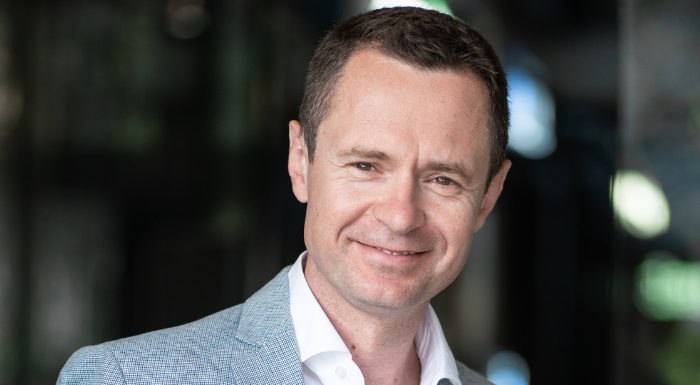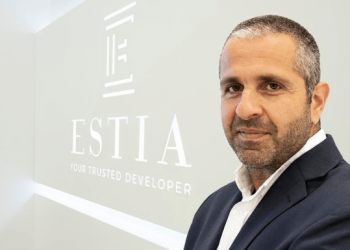Cordia is a member of the Futureal Group, one of the largest international property developer and investor groups in the CEE region. Over the last 19 years, the company has sold more than 7,000 apartments in Hungary, Poland and Romania and has a further 13,700+ homes in the pipeline.
CEEREM: You have been with the company for over six years now. What was your vision when you first joined Cordia Poland and how did it change over time?
We all must adapt to changing conditions, especially during the pandemic. The vision has certainly changed in a way that we pay closer attention to risks, no one in our generation has met a hazard of such a global proportion until now.
The pandemic made us more aware of the risks we would not normally count as such: take the psychological element in the decision making of an individual customer who wants to buy an apartment, for example. Their reluctance to spend in tough times represents a major risk for us because it eventually forces us to change our financing patterns. It is neither good nor bad, simply different.
CEEREM: How do you typically finance your projects and in what way did the pandemic influence your model?
We work with our own equity but also with loans. External debt was an opportunity we already took twice in Budapest, an unlikely positive outcome of the pandemic! Securing project financing is not easy nowadays, we must convince banks that developers still perform on a profitable market, but economic mechanisms came in to help. Low interest rates and soaring inflation forced private equity to invest in real estate. Having said that, it is still difficult to keep the business running at the same pace it was going before the pandemic.
Our appetite for developing more is also curbed by legal barriers such as permit granting procedures. The preparation time for a project has doubled now compared to pre-pandemic days. We understand bureaucracy comes naturally to government agencies; however, it should not prevent them from adopting new and more efficient technologies. The typical struggle for a developer in Poland is that, today, they cannot operate at the scale they were prepared for.
CEEREM: In a nutshell, what are the most important projects that you are working on presently?
We are kicking off the biggest real estate project in Poland, which requires a lot of preparation including groundwork communication with authorities. Warsaw, Krakow, Poznań and Gdansk are the geographies that we cover with this particular project and other few smaller ones. So far things are going well, but, as I already mentioned, the progress is not up to our normal speed.
CEEREM: What can you tell us about the Polish customer profile, what do people here expect to get in return when investing in a residence?
The buyer’s profile remained unchanged and we are essentially dealing with two types: those who are investing their hard-earned money in residential real estate and others who want to change their living circumstances. The buying appetite suffered a setback in the second quarter of 2020 as people did not know which way to go. It gradually picked up at the same time as the disease stopped being an absolute unknown.
We don’t know how fast the economies will recover, or what consequences the European governments’ internal spending will eventually have. The psychological factor I mentioned at the beginning has a key role to play as well. My best bet is we will have ups and downs in sales speed and prices. However, I do not foresee a significant negative impact on the real estate market, at least not in Poland.

















